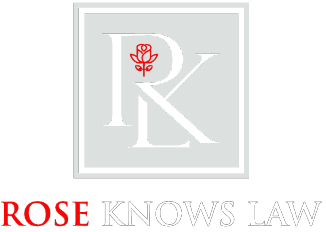After a collision, your mind is immediately flooded with anxiety about car damage, injuries, and of course, the potential cost of everything. Most people notify their insurance quickly after their accident to get the money they need to cover these costs as soon as possible. If the wreck was not your fault, your insurance company may not be able to help you, depending on your insurance coverage.
Some people will call the other (at fault) drivers insurance company for help. However, most people don’t realize that the other driver’s insurance adjuster is not on their side. The insurance adjuster’s first priority is to save the insurance company money, so it is in your best interest to tread carefully when speaking to them. They may ask you numerous questions and request all sorts of information, but there are many things you should refrain from telling an insurance adjuster after a car accident. To help ensure your rights are upheld and the compensation for your accident is fair, before you talk to the other drivers insurance company, consider hiring an experienced car accident lawyer.
What Not to Tell an Insurance Adjuster Following a Car Accident
Car accidents are anxiety-inducing enough without having to worry about communicating and negotiating with an insurance provider. Navigating communications with an insurance adjuster may be tricky, and it’s not always clear what information you are obligated to disclose to them. While there are some requirements for cooperating with your own companies insurance adjuster, there are no requirements that you have to speak with the other drivers insurance company. If you choose to talk to them, there are many statements you should avoid making when filing a car accident claim.
Don’t Tell an Insurance Adjuster You Feel Fine
By the time you sit down to talk to an insurance adjuster, you may feel fine, but you shouldn’t disclose that to them. Downplaying your injuries or implying that you weren’t injured in your accident will help an insurance adjuster justify offering you a smaller settlement. Receiving a smaller offer may be troublesome, especially if more severe symptoms start to manifest later on.
Car accident injuries can take significant time to reveal themselves, so you could need medical care in the future, even if you feel fine now. Arguing for a higher settlement will be challenging because the insurance company will probably reject you by using your comments as evidence that you are exaggerating your injuries, leaving you without the funds you need to seek complete treatment.
Don’t Apologize or Admit Any Fault to an Insurance Adjuster
Admitting you could have partially contributed to your accident or even apologizing for the accident could be construed as admitting fault. Anyone considered at fault for a car accident could be liable for the results in damages and injuries, meaning apologizing could put you on the hook for financially compensating everyone else involved or disqualify you from getting compensation.
Don’t Speculate About What Caused the Accident to an Insurance Adjuster
When discussing an accident with an insurance adjuster, it’s better to say as little as possible. When you must disclose something, you should make sure to stick to the facts. You shouldn’t offer an insurance adjuster any guesses or speculations about what happened or what caused your collision.
If you do, your speculations may prove false after further investigation, which could call the rest of your statement into question. These contradictory statements will be used against you by insurance companies to reject your claim. Other than the bare basics—when it happened, where it happened, who was involved, and who any witnesses were—you don’t need to tell them anything further about the accident.
Don’t Downplay the Severity of the Damage to an Insurance Adjuster
You shouldn’t blame that the damage to your car isn’t severe, just like you shouldn’t claim that you feel fine after your accident. Downplaying or insinuating that the damage is not severe could result in you losing out on the compensation you need to get it fixed.
From the exterior, your vehicle may not appear to have sustained much damage, but there could still be problems that you can’t see that necessitate costly repairs. Vehicle damage needs to be inspected by qualified mechanics and body shops, so it may take some time for you to discover the extent of the damage.
Let an Experienced Texas Car Accident Lawyer Handle Your Insurer
Car accidents aren’t just scary. They’re also stressful. After your accident, you need time to heal from your injuries, and you should be able to do so without worrying about saying the wrong thing to insurance adjusters. Consider leaning on the knowledge and experience of a Texas car accident lawyer to help you navigate communications with your insurer.
Rose Knows Law is a qualified attorney who takes pride in helping clients throughout North Texas. Since 1992, he has aided in the resolution of Texas auto accident lawsuits and obtained sizable payments for his clients. When you need legal representation to help you handle the insurance companies, you can count on Attorney Dale R. Rose to offer you tailored legal counsel. You can phone (972) 634-7673 or complete our contact form to schedule a free consultation.
